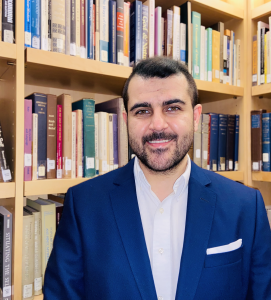Nariman Aavani

PhD, Harvard University
Dr. Aavani's research focuses on Islamic philosophy and Sufism in Iran and the Indian subcontinent from the 13th century to the early 1800s. Within this framework, he has a particular interest in exploring the historical and philosophical dynamics of Hindu-Muslim relations, both during the Mughal period in India and across various regions.
His first monograph, Hindu Engagement with Rumi's Mathnawi in Mughal India, delves into the literary contributions of two Hindu poets, Banwalidas (d. 1666) and Bhupat Ray Bigham (d. 1720), who composed poetry in the Persian mathnawi style, emulating the Mathnawi of the celebrated Sufi, Jalal al-Din Rumi (d. 1273). This work demonstrates how these poets engaged in a creative process of interpreting Rumi's Islamic worldview through the lens of Hindu and local stories from various sources, including the Bhagavad Gita and Shankara's Manishapanchaka. By merging elements from both cultures, these poets created a shared literary space that facilitated Hindu-Muslim coexistence during the Mughal period.
His second book project delves into a Hindu-Muslim cross-cultural philosophy of religion, focusing on the writings of two 17th-century philosophers: Mulla Sadra (d. 1635) and Gadadhara (d. 1660). The project aims to investigate the sources of normativity in their respective accounts of the ultimate purpose of human life. In his recent publications, he has explored themes such as Ibn 'Arabi's concept of ecstatic utterances (shatahat) and the reception of the idea of Platonic forms (al-muthul al-aflatuniyyah) in Safavid Persia.

